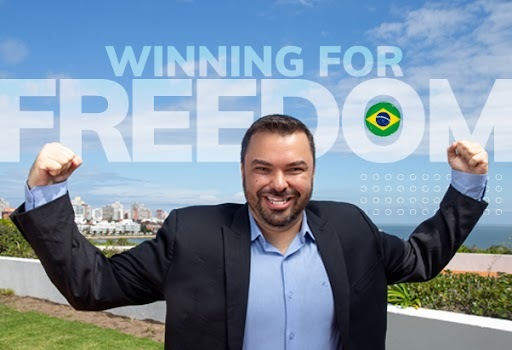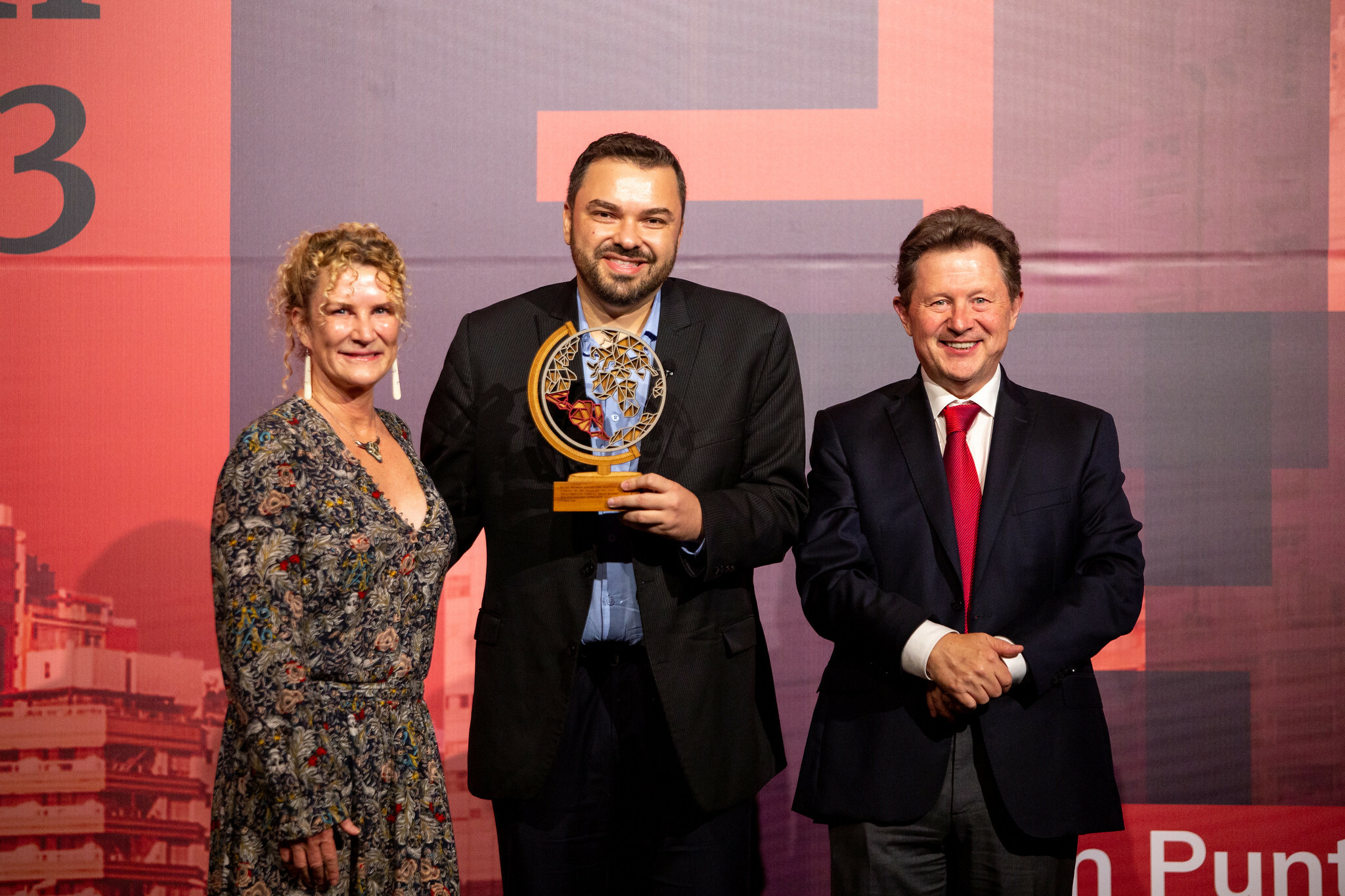Eradicating Poverty
Uplifting a Nation with the Freedom to Work


When Marcelo Faria, founder of Instituto Liberal de São Paulo (ILISP), accepted Atlas Network’s 2023 Latin America Liberty Award in Punta del Este, Uruguay, the prize represented the culmination of years of effort and inspiration. He and his organization had set out with one not-so-simple goal in mind: giving Brazilians across the country’s 5,500 cities and 26 states the right to work, free of stifling bureaucracy. Now, that dream is becoming a reality as millions of Brazilians receive and exercise the right to choose their own career.

A Matter of Life and Death
Entrepreneurship in Brazil is not only born from opportunity, but from necessity. Many low-income Brazilians must create their own job to feed themselves or their families. But in Latin America’s most populous nation, local bureaucracy—including outright corruption—can often stand in the way of honest work. Local officials can deny licenses for workers and entrepreneurs, sometimes demanding bribes for a license to be approved.
Marcelo’s campaign for the freedom to work, known in Portuguese as Liberdade para Trabalhar, was inspired by the story of a cheesemaker from the country’s central region. The man was unable to renew his expired license, prompting state officials to confiscate all of his products. “Everything he had—thousands of U.S. dollars in cheese—was confiscated by the state,” said Marcelo. “He had nothing else to sell. Poor people don’t have years to wait for their money. They need to pay their bills now.”
Believing he would never be able to overcome the corrupt system that stole his business away from him, the cheesemaker tragically took his own life.
Freedom From the Bottom Up
In the midst of the COVID-19 pandemic, workers and entrepreneurs across Brazil were also losing their livelihoods as government restrictions closed businesses for months on end. It was in these early days of the pandemic that Marcelo joined Atlas Network’s COVID-19 cohort, a monthly series of virtual meetings with policy leaders around the world. By connecting with other Atlas Network partners, Marcelo learned from his peers how reforming occupational and business licensing requirements could allow low-income workers to move into higher-paying jobs, become entrepreneurs, and keep their businesses open.
Although Brazil had recently passed a federal Economic Freedom Law that encouraged licensing reform, ILISP discovered it required action at the state and local level to truly expand economic opportunities for Brazilians.
“The federal law without states and cities on board is nothing; it doesn’t work,” Marcelo said.
“States and cities needed to approve the law, too, so it could be effective.”
Low Risk, High Reward
Marcelo Faria and his team at ILISP worked for two years to develop relationships with municipalities, state governments, and allied organizations across their country. Their aim was to see local governments apply the provisions of the federal Economic Freedom Law and designate certain professions as “low risk,” relieving workers in these fields of the need to apply for a license.
As Liberdade para Trabalhar gained traction, municipalities became eager to work hand-in-hand with the ILISP team, who often understood the Economic Freedom Law better than the officials. So far, 118 cities have implemented the law, 53 of them thanks to ILISP’s efforts. In late March 2023, after partnering with Marcelo’s team, the State of Rio Grande do Sul expanded their Economic Freedom Law, growing the list of “low-risk” occupations from 24 to 770. This benefits 11.5 million workers, some of whom reside in cities that already reformed their own licensing rules. That’s nearly 14 million workers who now have directly benefited from ILISP’s work, enjoying greater freedom to choose their own work and shape their own futures. Millions more have benefited indirectly from the organization’s work as municipalities adopt the Economic Freedom Law.
Marcelo points out that the jurisdictions that have adopted the Economic Freedom Law have seen an 88.9% increase in the annual average number of new businesses opened, showing just how much potential has already been unlocked thanks to reduced bureaucratic burdens. Those same cities also saw, on average, a 40% increase in the number of jobs created after adopting the law.
Brazil and Beyond
With many cities and states left to reach, Marcelo and the ILISP team will continue to advance the freedom to work across Brazil. They also aim to improve countless more lives in Latin America and around the world by sharing strategies for adopting their successful model in other countries.
Their success is being recognized. In addition to winning the 2023 Latin America Liberty Award, ILISP has been selected as a finalist for the 2023 Templeton Freedom Award, Atlas Network's largest and most prestigious prize of the year. The winner of the Templeton Freedom Award will be announced at Freedom Dinner in New York City this November.
“Ronald Reagan once said that the best social program is a job,” said Marcelo. “But actually, I believe that the best social program is freedom to work, because you can create your job and other jobs, too.”